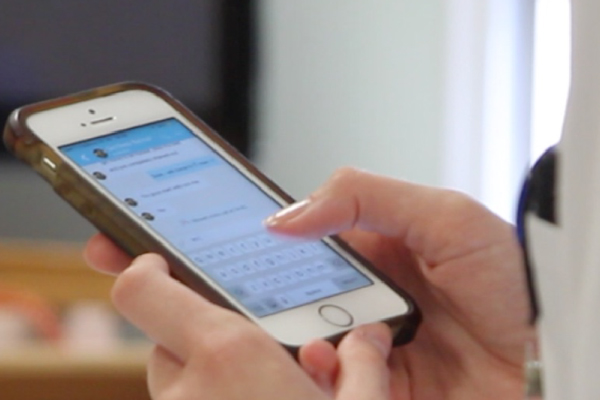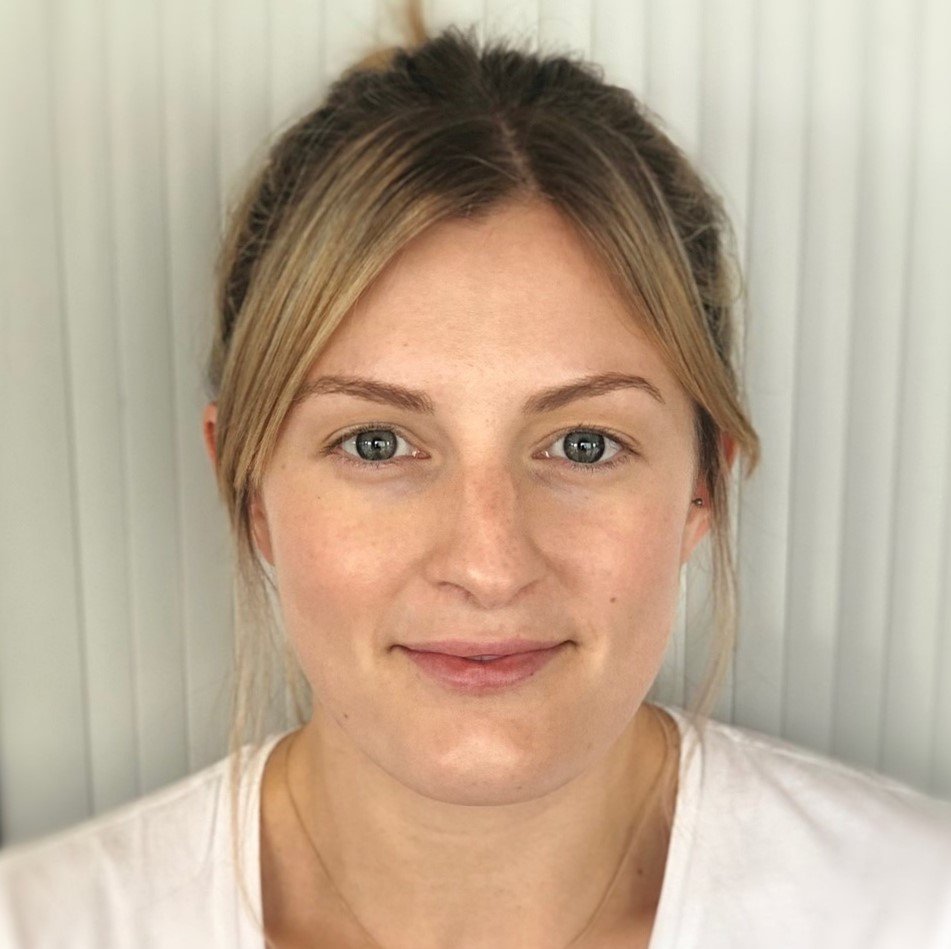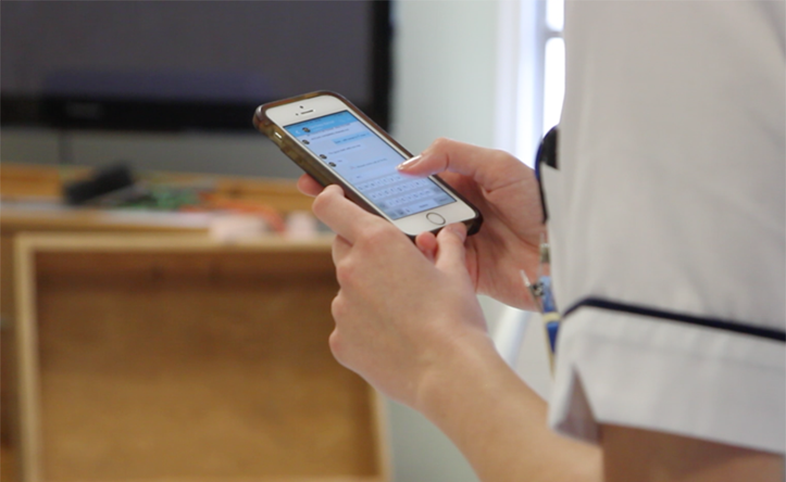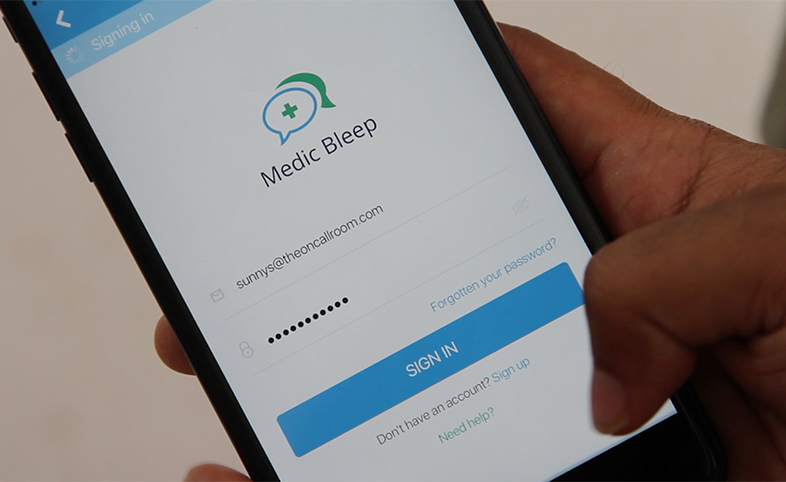Finding the right business partnership can help you grow your clinical innovation and benefit everyone, explains Dr Sandeep Bansal
I founded Medic Creations because I saw a gap in the market and a need to do things differently to allow hospital and community staff to communicate in real time, sharing vital information and updates about patients accurately and safely. We worked hard to develop Medic Bleep, prove the app was effective and roll it out in numerous trusts, but a good idea isn’t always enough to navigate NHS procurement and embed an innovation in patient pathways – sometimes you also need a commercial partner too.
In our case we knew from our pilots that good IT infrastructure and connectivity were essential success factors for rolling out Medic Bleep. So, for us it was logical to seek a partnership with a telecommunications company who provide the network necessary for the use of our innovation. Procurement is complicated for NHS trusts in a busy marketplace, so we needed to make it easier for them to buy our product and address potential concerns they may have about complications with integrating with their equipment.
We realised that we could reach our goals further and faster if we found the right partner who could integrate our idea with their hospital support package and build on their existing relationships to fast-track our route to adoption. We have therefore gone into a commercial partnership with BT to include Medic Bleep in their distribution contract with BT means they now offer our app as part of their package to provide Wi-Fi infrastructure to hospitals and care facilities across the UK. It enables us to provide Samsung phones with Medic Bleep already installed and integrated with a live directory to see who is currently at work in a hospital or practice.
As an innovator you want to grow your solution and ultimately make an impact, but a great idea needs to be developed into a sustainable business to be a long-term success and you can’t always achieve that on your own. It’s not always an easy decision to enter a partnership with another business, but if you are thinking about partnering with another organisation here are three questions you should ask yourself to make the decision easier:
1. Why are you trying to do this on your own?
No man is an island. Neither is your business. Entrepreneurs are often resistant to partnering with other organisations due to fear of loss of control, cultural differences, or less flexibility.
The first step in overcoming barriers is understanding your strengths and weaknesses, which may vary depending on how mature your business is. Funding is important but is rarely the only barrier to success.
2. What are the opportunities to grow your innovation?
When thinking about partnership opportunities, it helps to think of the big picture. There may be markets you haven’t considered before or channels into your target markets that might be opened up through the right partner.
It pays to think creatively – I know of another innovator whose solution helps hospitals keep track of equipment so is looking to partner with a manufacturer of medical supplies to see how they can work together.
Can you learn from another industry? Can you adapt your solution to meet a different need? Might your innovation be even more effective when packaged with a complimentary product? Talking to your customers and end users can help you discover opportunities you may not have thought of before. Health Innovation East facilitated a pilot in the region and helped us better understand our strengths and where we could benefit from support. The evaluation helped us show the potential and scalability of Medic Bleep while the experience and feedback highlighted the potential barriers we needed to work on.
3. How might a partnership be mutually beneficial?
Building on your strengths and addressing your weaknesses, consider who is already in your target markets. Who is best placed to help you reach your goals? Accessing expertise, economies of scale, brand awareness – the right partnership can accelerate your business and help navigate the barriers to helping you to make a difference for patients.
Being clear on what you can offer is just as important as determining what you need – you might be the solution someone else is already looking for. We piloted Medic Bleep in West Suffolk NHS Foundation Trust because they were interested in improving staff communication. We worked closely with the trust to engage and train their staff to ensure the best chance of successful adoption whilst developing our support package to improve future rollouts.
Our partnership with BT is great for both organisations – BT are now able to offer customers a proven innovation which easily integrates with their existing communication tools and IT package while Medic Bleep is being adopted faster than we could have managed on our own and delivering impact for staff and patients.
Reaping the benefits
We are already seeing the benefits of finding the right partner – we are currently in conversations with NHS England and NHS Improvement and 38 NHS trusts interested in rolling out our pager alternative. We have received valuable media coverage and have attracted international attention, generating leads in the United Arab Emirates, Canada and the USA.
Through our partnership with BT, Medic Bleep was announced in August as an approved supplier on the NHSX Clinical Communications Procurement Framework, meaning we have been assessed to ensure our product meets all legislative requirements and no further tendering is required. Our ability to scale was an important element of being on the framework and our relationship with BT helped us evidence this.
As a clinical innovator it can be difficult to quantify your strengths and uncomfortable to acknowledge your weaknesses but doing so is vital to finding the gaps and partnering for success.
Having put so much into your business, you need to make sure a partnership is right for you. Decide what your non-negotiables are, what you need and what you can achieve together. I would recommend talking to Health Innovation East, who have extensive experience of convening those with healthcare problems with those with solutions and facilitating a partnership which benefits both parties as well as delivering the most patient impact.
You never know, you might be the final piece in someone else’s jigsaw.

Dr Sandeep Bansal is the founder and CEO of Medic Creations – the company’s core product is Medic Bleep.
Though born in the UK, he studied medicine at a private international medical school in India. He then came back to the UK for his medical training in Wales and has since graduated with a PgDip in Paediatrics from Imperial College London. It was during his time as a GP trainee in Oxford that he decided to make the switch from doctor to entrepreneur.
Medic Bleep was the result – an app that allows hospital and community staff to communicate in real time, sharing vital information and updates about patients accurately and safely.
Dr Bansal is also an innovation mentor at Royal College of General Practitioners and a member of the teaching faculty at Harvard Medical School.
You may also like…

Learn how Health Innovation East worked with Medic Bleep to improve operational efficiency through piloting a staff communication app. Read more.

Read this blog by Pip Hodgson (A&E Nurse and Clinical Adviser to NHSX) on the launch of the NHSX Clinical Communication Tools Framework in August 2020. The framework aims to support NHS organisations with dedicated clinical facing communication and tasks management tools, to accelerate the adoption of proven technologies and to phase out pagers by the end of 2021. Medic Bleep was one of 25 innovations announced within the framework. Find out more here.
Share your idea
Do you have a great idea that could deliver meaningful change in the real world?
Get involved
